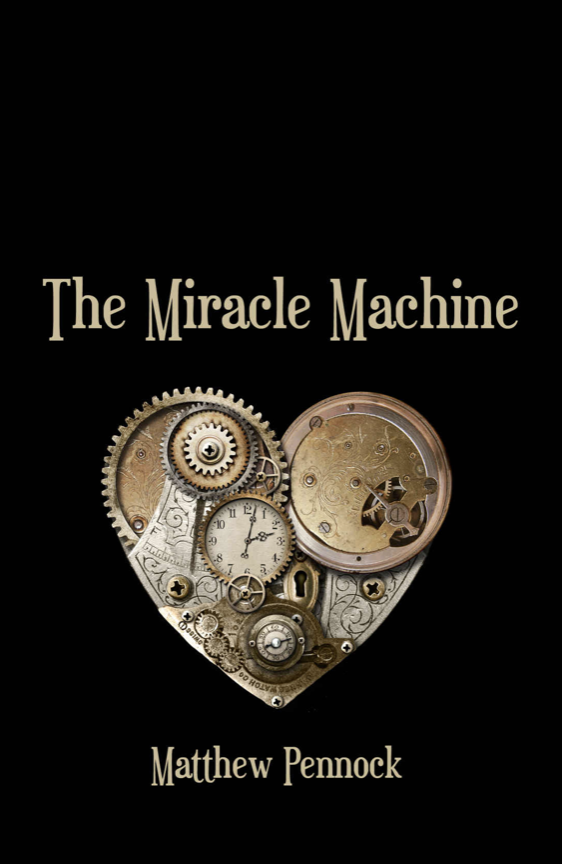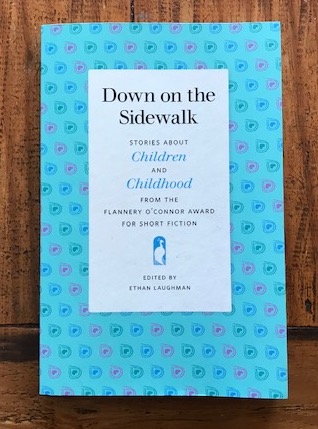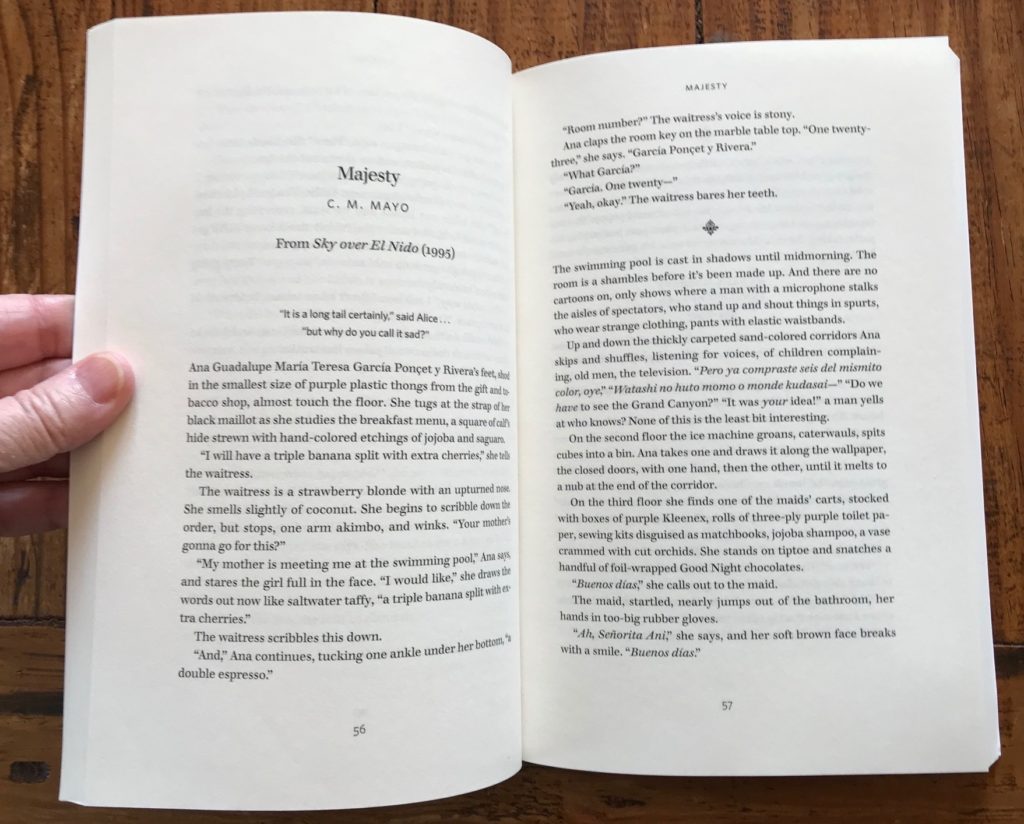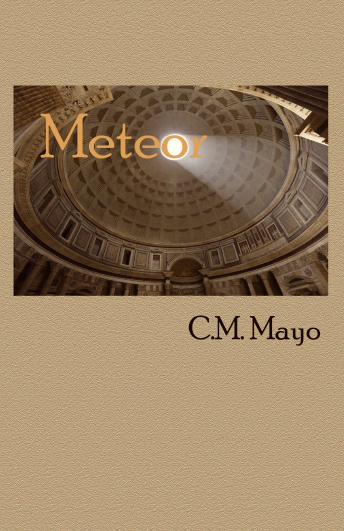
This blog posts on Mondays. Fourth Mondays of the month I devote to a Q & A with a fellow writer.
“Many poets find their voice and stick to a sort of signature style their entire careers. That has never appealed to me. I’d get bored chewing on the same poem for eternity like an indigestible hunk of gristle. My eclectic nature in regards to style and voice remains driven by my eclectic reading habits. I like to read all sorts of things.”—Matthew Pennock
Last year my book, Meteor, won the Gival Press Poetry Award and, as per the contest rules, I served as the judge for this year’s award. In an impressive batch of finalists Matthew Pennock’s The Miracle Machine was the shining standout. Here’s my official blurb:
“With a craftsman’s deftest precision and a thunder-powered imagination on DaVinci wings, the author recreates a lost world within a lost world that yet—when we look—shimmers with life within our world. Elegant, wondrously strange, The Miracle Machine is at once an elegy and a celebration, tick-tock of the tao.”
—C.M. Mayo

By the way, the judge for the Gival Poetry Award does not know the names nor anything about the poets who submit their manuscripts. I only found out that the author of The Miracle Machine was Matthew Pennock—whom I have not yet had the pleasure of meeting in person—when Gival Press’s editor, Robert Giron, let me know by email. Well, it turns out that, no surprise, I had selected the work of one very accomplished poet. Pennock received his MFA from Columbia University and his PhD from the University of Cincinnati. His poems have been widely published in literary magazines, including Gulf Coast, Denver Quarterly, Western Humanities Review, Guernica, New York Quarterly, and LIT, and his first book, Sudden Dog (Alice James Books, 2012), won the Kinereth-Gensler Award.

Dear writerly reader, this is one of the pleasures of hosting a blog: I get to talk to people I might not otherwise. Right now, of course, the covid makes most meetings impossible anyway. So here we are, and may you find Pennock’s answers as interesting as I did. And at the end, a treat: one of his poems.
C.M. MAYO: What was the spark— what inspired you to write these poems?
MATTHEW PENNOCK: With too many of my poems, television provides the spark. I had been watching “Mysteries at the Museum,” which is like the TV version of clickbait. They start an interesting little teaser story, and you have to wait through a commercial break (watching commercials, how novel!) to get to end, and then the process starts anew. I think I’ve seen every episode.
Needless to say, I was lying there and this story came on the screen about an automaton in the Franklin Institute in Philadelphia. I have always had a fascination with automata, like the miracle monk Juanelo Turriano created for Charles V, or the fraudulent Mechanical Turk, but I had not heard of this one. I did a little more research and found it on the Franklin’s website. I was delighted by the breadth and quality of the drawings it could create, and the fact that it wrote poems was the clincher. I felt I had to write a poem about the mechanical boy that wrote poems. One poem became two, and then I thought, why not a short series? The more research I did for the poems took me to new places and new characters, and the project just kept growing until it became its own book.
C.M. MAYO: As you were writing, did you have in mind an ideal reader?
MATTHEW PENNOCK: Not particularly. When I wrote the poems that comprised my first collection, I definitely knew who I was writing to, but this time was different. I wrote these for myself. By that, I mean I used them to make sense of the world as I saw it. This book began during a heated election year, not the 2016 election but the 2012. Due to the Trump era, I think many people have idealized the entirety of the Obama administration, and seemed to have forgotten how nail-bitingly close the 2012 election was until a few weeks before the denouement. That combined with the subsequent four years of obstructionist politics by Boehner and McConnell gifted us what seemed like a weekly Armageddon of debt ceiling crises and fiscal cliffs. In 2008, for a brief teasing moment, there was so much hope and potential for us to finally start tackling the ills that had so long plagued our country: healthcare, climate change, perpetual war, racism, etc. To have it all come to so little felt truly devastating. Then, of course, came Trump. I finished this book about a year into his reign, so I think that’s why the whole thing has such an elegiac tone.
I do want to make clear though that this book is not solely a political work, I think that reading of it exists, but that’s mainly because of the atmosphere in which it was scrawled, but I hope that’s only one dimension of it. I poured all the angst and joy I had into it, so the book is deeply personal for me, and delves into my struggle with so many other things: time, and its passage; love; the nature of reality, and so forth.
C.M. MAYO: Now that it has been published, can you describe the ideal reader for this book as you see him or her now?
MATTHEW PENNOCK: No, I can’t. I’m sort of a firm believer in once my work has entered the world, it has ceased to be mine. I really don’t have much control over what happens to it, and I’m fine with that. Every person who takes the time to read it has a right to see what they want in it. I really do not want to speculate who would get the most from it, or who would understand it the best. I’d inevitably be wrong, and I would feel like a parent telling my child that they must be a lawyer because I was a lawyer, or something like that.
C.M. MAYO: Which writers and poets have been the most important influences for you?
MATTHEW PENNOCK: I always struggle with this question. I don’t have any writers I return to over and over like a blessing of personal Olympians to whom I must pray. In creative writing, it’s hard to get very far before you’ve heard someone talking about “finding their voice.” A famous poet who led a workshop I was in during grad school once told me I’d never write a successful poem because I was too shifty and couldn’t stick to a consistent voice. I didn’t like that. Many poets find their voice and stick to a sort of signature style their entire careers. That has never appealed to me. I’d get bored chewing on the same poem for eternity like an indigestible hunk of gristle. My eclectic nature in regards to style and voice remains driven by my eclectic reading habits. I like to read all sorts of things.
In addition to fiction and poetry, I love narrative non-fiction about anything: history, science, politics, etc., and I get something from almost everything I read, or watch for that matter. The beautiful thing about writing a book like The Miracle Machine was that I did a good amount of research, and it took me so many places. I took influence from history books about pre-modern medicine, alchemy and mysticism; documentaries/movies like Ken Burn’s The Civil War, and Martin Scorsese’s Gangs of New York; Novels like Cloud Atlas, by David Mitchell; and still other things like Offenbach’s opera The Tales of Hoffman. I studied epic poetry and other long form works of poetry. Too many to list really, A few favorites: The Ring and the Book, by Robert Browning, Eugene Onegin, by Alexander Pushkin, Orlando Furioso by Ludovico Ariosto, and of course, The Dream Songs, by John Berryman.
C.M. MAYO: Which writers are you reading now?
MATTHEW PENNOCK: Books that I physically have a book mark in right now an am switching between: The Path between the Seas, by David McCullough, Snake, by Erica Wright, Dream of the Unified Field, by Jorie Graham, and I just finished Number 9 Dream, by David Mitchell and Toy Medium: Materialism and the Modern Lyric, by Daniel Tiffany, which was recommended to me by the great Timothy Donnelly after he blurbed my book.
C.M. MAYO: How has the Digital Revolution affected your writing? Specifically, has it become more challenging to stay focused with the siren calls of email, texting, blogs, online newspapers and magazines, social media, and such? If so, do you have some tips and tricks you might be able to share?
MATTHEW PENNOCK: I am not particularly prolific. I do not write every day, and I’m often distracted by all the shows I can stream, and podcasts I can listen to. Social media has never really appealed to me, so I am okay there, but other than that, someone needs to give me some tips about how to get a little more done.
C.M. MAYO: Another question apropos of the Digital Revolution. As a poet, at what point were you working on paper? Was working on paper necessary for you or problematic?
MATTHEW PENNOCK: I kept a romantic attachment to paper for a little while, but once we got into the late aughts, and I made the permanent switch from having a home desktop to having a laptop I could carry around, writing directly on the computer became way too convenient. I can’t imagine going back to paper now. After all, the internet makes looking stuff up as you write so much easier. You never know when you might need to know an obscure fact about the health of Lake Champlain’s ecosystem, or whatnot.
C.M. MAYO: For those looking to publish, what would be your most hard-earned piece of advice?
MATTHEW PENNOCK: I don’t think I have to tell anyone that getting published is hard, the odds are long and the expense is hard to justify. I really dislike it when people try to gloss over that fact, and paint a rosy picture of the contest model. I spent nine years with Alice James Books, six of those years as Chair of the Editorial Board, and during that time, I saw around a thousand manuscripts for various contests. The best advice I can give is be adaptable, never stop looking for ways to improve your book. I saw manuscripts reappear unchanged year after year, while others would continuously change and improve. Those in the latter category would eventually break through, if not with us, then elsewhere. Good work will find a home, but sometimes, it takes longer than any of us want.
C.M. MAYO: What important piece of advice would you give yourself if you could travel back in time ten years?
MATTHEW PENNOCK: Forget about academia, go find something else to do to earn your rent.
C.M. MAYO: What’s next for you?
MATTHEW PENNOCK: I’ve been working on a manuscript for a novel. It involves an awful lot of research about foxes.
BROADWAY & ANN
by Matthew Pennock
From The Miracle Machine (Gival Press, 2020)
Curiosity wins in the underground—
Tunnels serpentine, electricity,
occasional unnatural liquid—
Too much to bear in my so-long city.
At first surface, I keep in shadow, but people
throng with such grace,
a starling’s murmur twisting
at the behest of light.
Chaotic coordination,
I cannot help but join
and walk openly among them.
Focused on their gadgets,
no one notices just another synthetic boy
in his own 19th century,
enthralled by every last one of them:
their hair of colors and lengths; skin dappled, smooth,
or freckled; every eye, liquid and light.
The Chinese believe when a tiger dies,
her eyes sink into the earth
to become amber,
but death is not necessary for us.
We are already compressed light—
Infinite procession to the mouth
of a hulking bridge.
Then absence becomes
a poignant delicatessen, filled
with a few unattended bottles,
mustard hardening in the window.
No horses, banners, wood,
No trace—she, me, never here.
*

Q & A with Timothy Heyman on the Incomparable Legacy
of German-Mexican Novelist B. Traven
Q & A with Diana Anhalt on Her Poetry Collection Walking Backward






